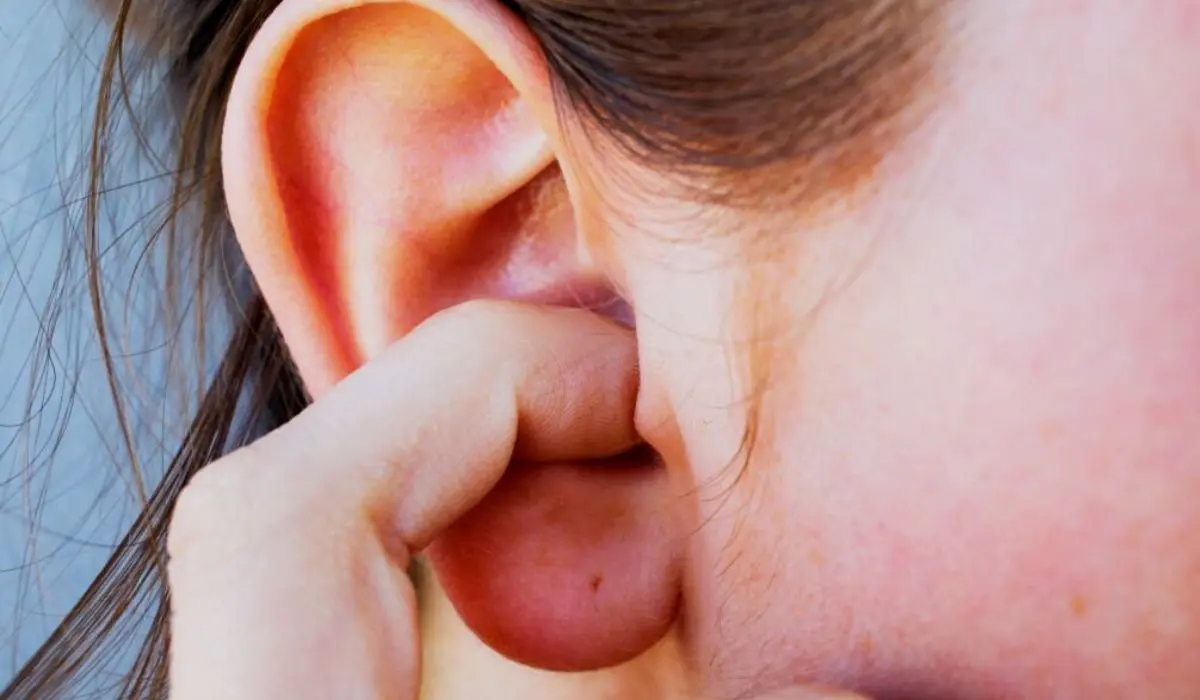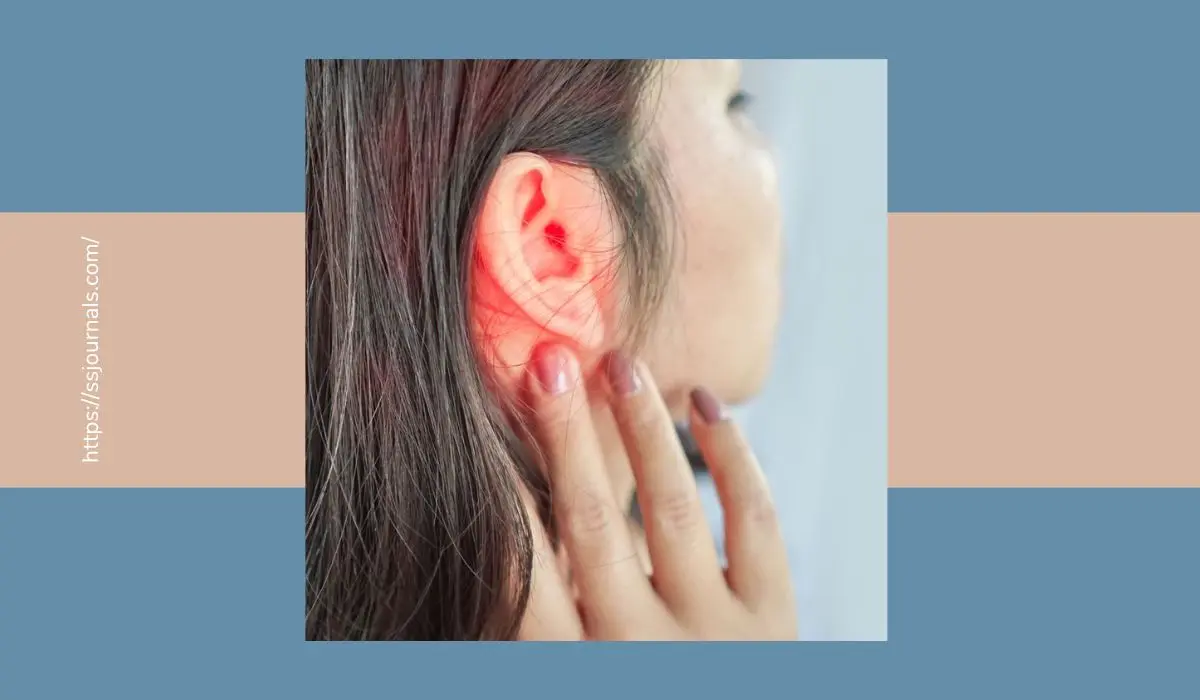An outer ear infection, also known as otitis externa or swimmer’s ear, occurs when the skin of the outer ear canal becomes inflamed and infected. This causes redness, swelling, pain, and itching in the ear.
Outer ear infections have various causes and home remedies can help manage symptoms and reduce recurrence when precautions are taken. This article explores the causes, symptoms, home treatments, and preventive tips for outer ear infections.
How Is An Outer Ear Infection Caused?
The most common causes of developing an outer ear infection include:

– Swimming – Water trapped in the ear canal damages skin and allows bacterial overgrowth.
– Aggressive ear cleaning – Can scrape ear canal skin making it vulnerable to infection.
– Allergies – Chronic allergies cause inflammation and increased earwax encouraging infection.
– Skin conditions – Eczema, psoriasis, and seborrhea leads to cracks allowing bacteria entry.
– Foreign objects – Using cotton swabs, bobby pins, headphones etc injure ear canal skin.
– Hairsprays, dyes – Chemicals in these products can irritate and inflame the ears.
– Low immunity – The weakened immune system makes ear canal more susceptible.
– Bacteria – Pseudomonas aeruginosa and Staphylococcus aureus are common causes.
– Fungi – Aspergillus niger and Candida albicans overgrowth can lead to infection.
Signs and Symptoms of Outer Ear Infection
The common symptoms experienced with outer ear infections include:
– Severe itching in the ear canal
– Muffled hearing and noises sounding softer in the infected ear
– Feeling of fullness and pressure in the ear
– Sharp ear pain that worsens when the outer ear is touched or moved
– Fluid drainage from the ear – may be yellow, white, or foul-smelling
– Redness, swelling and warm sensation in the outer ear and earlobe
– Crusting of earwax mixed with pus along the ear canal
– Partial blockage of the ear canal by inflammation, discharge
– Pain that radiates to the face, jaw and neck on the affected side
Natural Remedies for Outer Ear Infection
1. Heat therapy – Place a warm compress over the ear to provide relief from pain.
2. ACV rinse – Mix apple cider vinegar with equal parts water. Use a dropper to apply 2-3 drops in the infected ear 2-3 times a day.
3. Olive oil drops – Has antibacterial properties. Apply slightly warmed extra virgin olive oil to the infected ear.
4. Tea tree oil – Mix with olive oil and apply to outer ear using a cotton swab 2 times a day to reduce infection.
5. OTC ear drops – Help fight infection using acetic acid or antibiotics. Follow package directions.
6. Xylitol spray – A sugar alcohol that draws out fluid and inhibits bacterial growth. Spray xylitol solution into ear.
7. Saline rinse – Rinsing the ear with a saltwater solution helps remove wax and drainage.
8. Hydrogen peroxide – Can bubble away debris, earwax and exudate clogging the ear canal and worsening infection. Use a 3% solution.
9. Prescription antibiotics – For severe or chronic outer ear infections, doctors may prescribe antibiotic ear drops or oral antibiotics.
10. Pain medications – OTC drugs like ibuprofen, acetaminophen help relieve pain from an outer ear infection.
Tips and Precautions to Avoid Outer Ear Infections Long Term
– Dry ears thoroughly after swimming or bathing. Tilt head to side and pull ear in different directions.
– Avoid using cotton swabs or objects to clean ear canals which can cause injury.
– Treat underlying allergies that increase swelling and moisture in the ears.
– Improve ear hygiene and regularly remove excess earwax.
– Use earplugs when swimming to keep water out of the ears.
– Consider ear drying solutions after swimming or showering.
– Avoid scratching or touching ears with dirty fingers as it spreads germs.
– Manage chronic conditions like diabetes, psoriasis that increase infection risk.
– Don’t use headphones excessively or sleep wearing them as they irritate the ear canal.
Conclusion
Preventing water logging and irritation to the delicate ear canal skin is key to avoid acute or chronic outer ear infections. Practicing good ear hygiene, treating allergies, and avoiding over-cleaning can help prevent infection development.
Using natural remedies can support healing along with taking precautions. Seek medical help if symptoms persist or worsen. With proper care, outer ear infections can be effectively managed.
Read More:- Using Hydrogen Peroxide For Ear Wax Removal: What You Need To Know
FAQs
Q1: Are outer ear infections contagious?
No, outer ear infections themselves are not contagious. However, the bacteria and fungi causing them can be passed from person to person through shared earphones, earplugs or unclean water. Practicing good hygiene prevents transmission.
Q2: Can you go swimming with an outer ear infection?
It is best to avoid swimming until an outer ear infection has completely cleared. Water can irritate the inflamed ear canal and worsen or prolong the infection making it chronic.
Q3: Does warm or cold compress help an outer ear infection?
For an outer ear infection, a warm compress placed over the outer ear can help ease pain and draw out fluid. Cold compresses are not typically recommended as they can worsen congestion.
Q4: When should you see a doctor for an outer ear infection?
See a doctor if ear pain persists more than 2 days, you experience hearing changes or loss, swelling blocks the ear canal or symptoms worsen despite home treatment. Severe infections may require prescription medication.
Q5: Can you use hydrogen peroxide for an outer ear infection every day?
Hydrogen peroxide can be used 1-2 times daily for up to a week. More frequent long-term use is not recommended as it can irritate the ear canal skin and delay healing. Discontinue use if increased discomfort.

